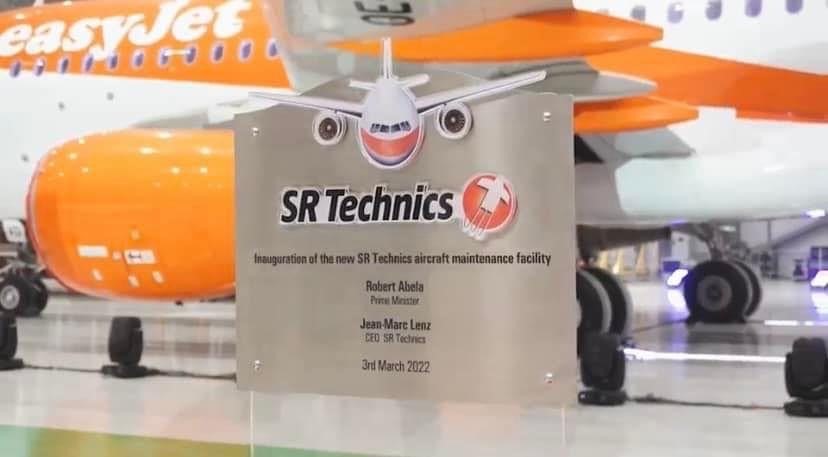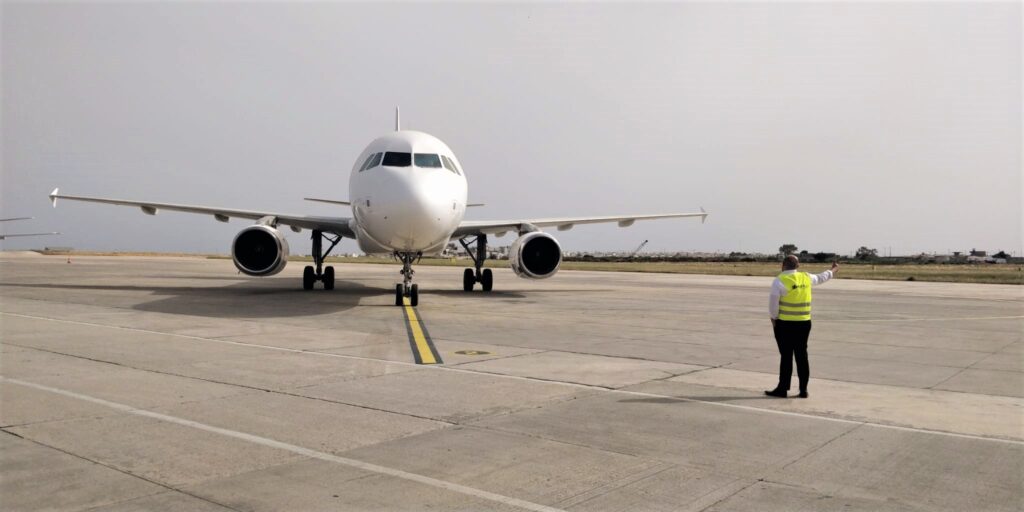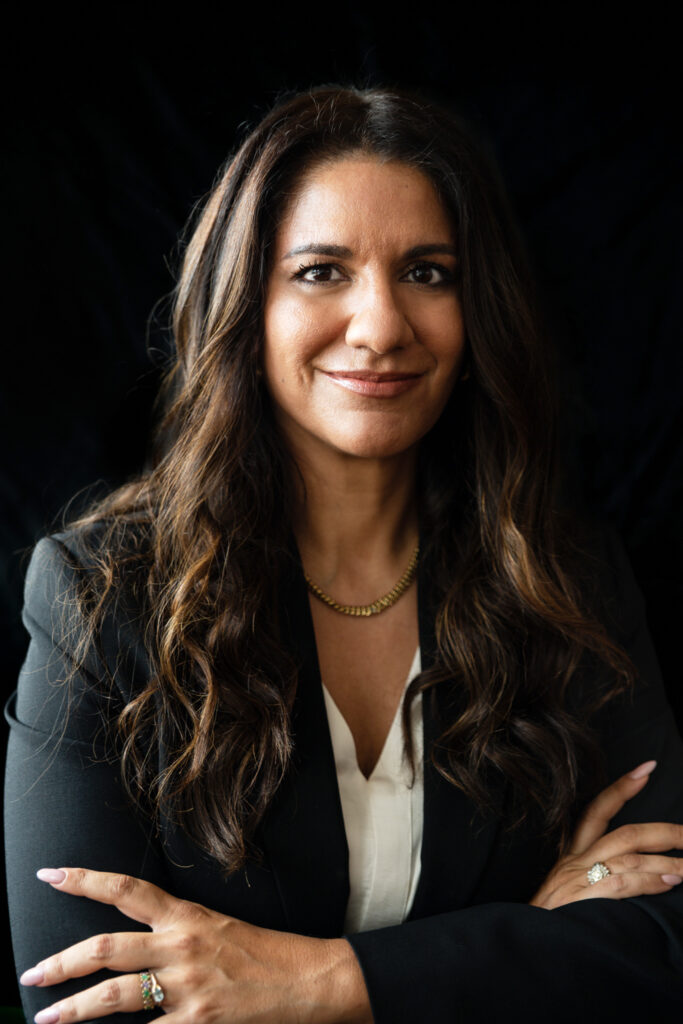SR Technics is one of the world’s leading providers of MRO solutions for aircraft, engines, components, engine services, line maintenance and training.
They have MRO facilities globally, including their 34,000 sqm Centre of Excellence in Malta which can accommodate six narrowbody aircraft and is built with modern materials with workshops and maintenance hangars that can perform all types of maintenance schedules and repairs. It even has a direct taxiway to the Malta Airport’s main runway.
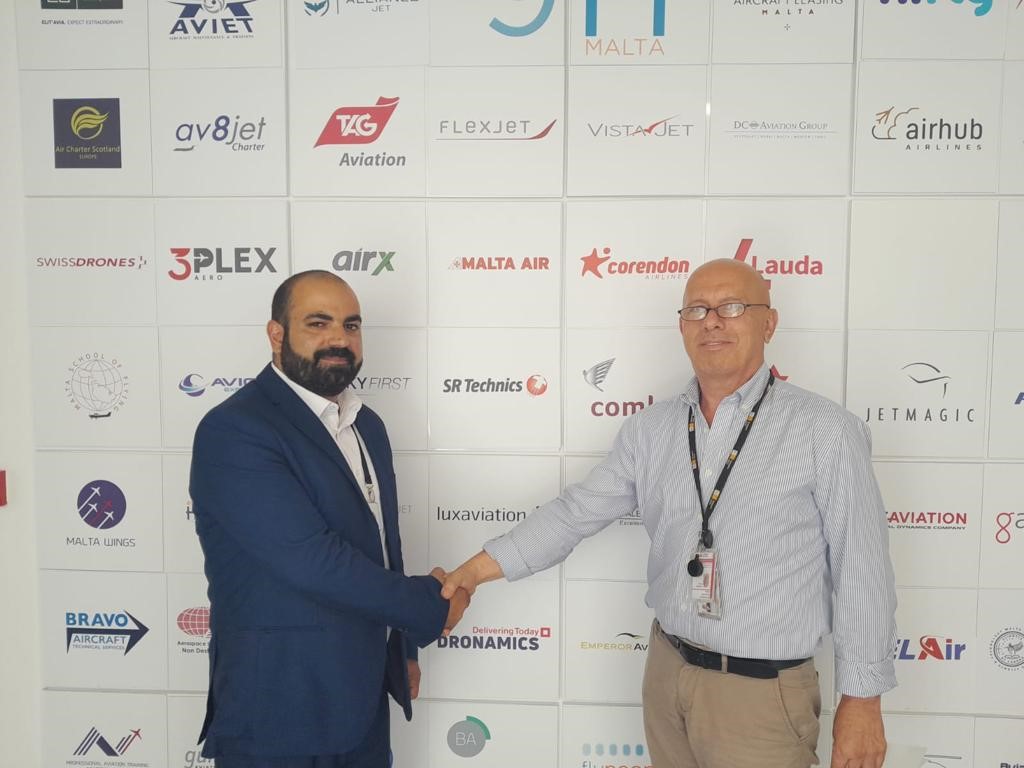
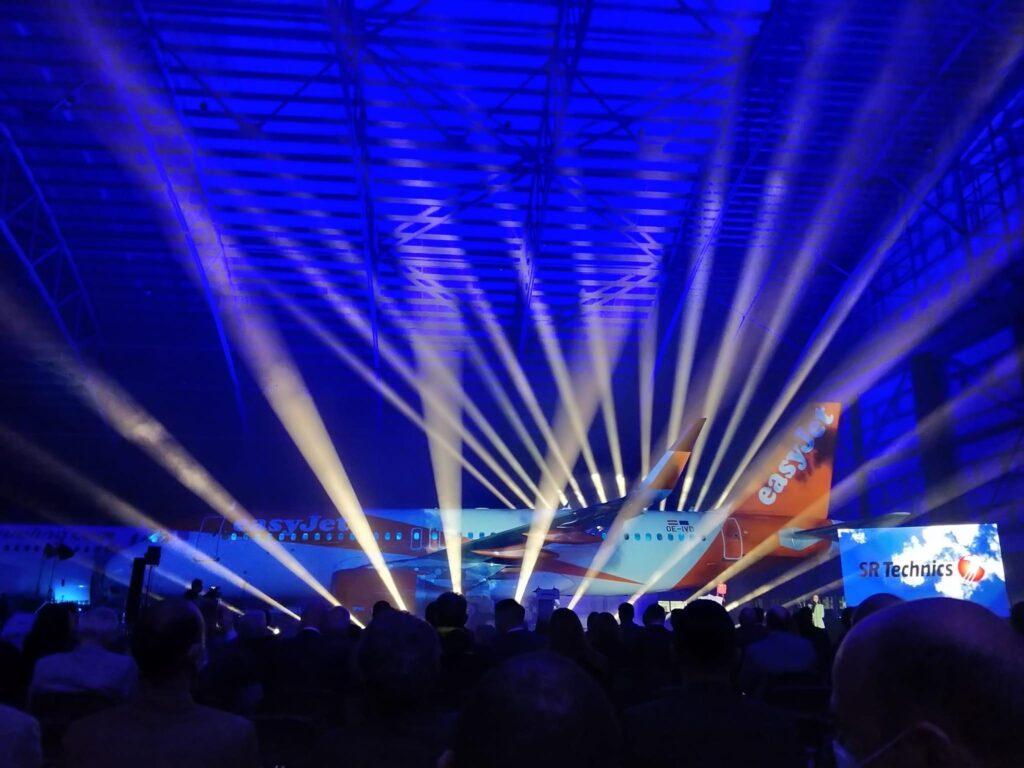
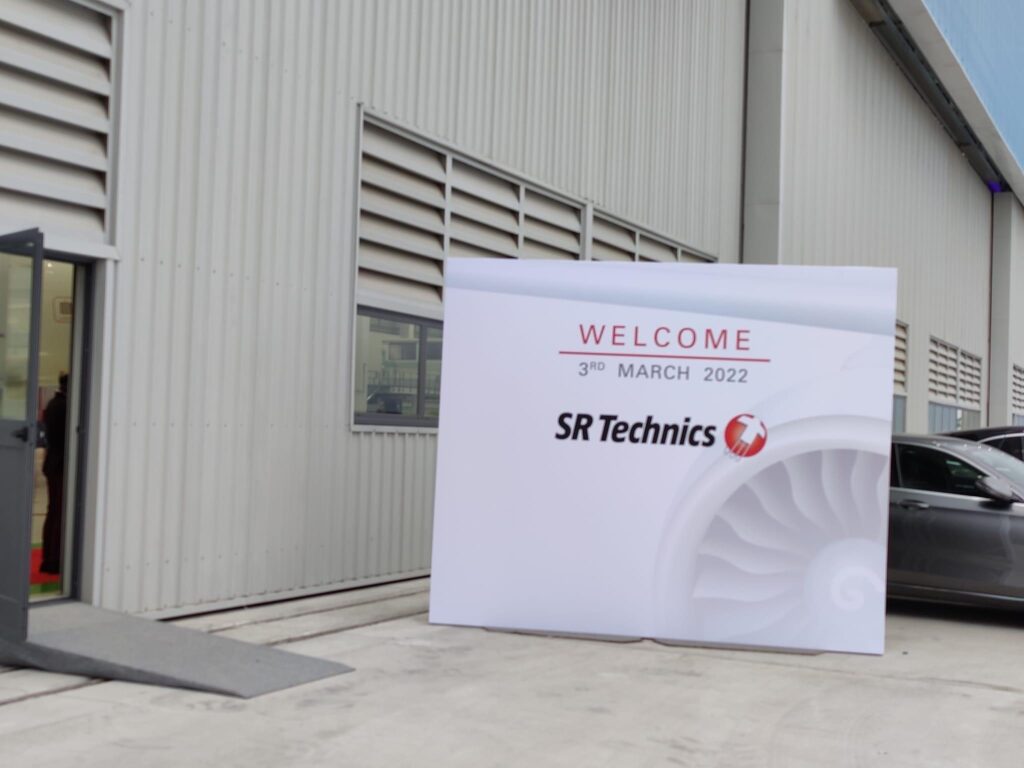
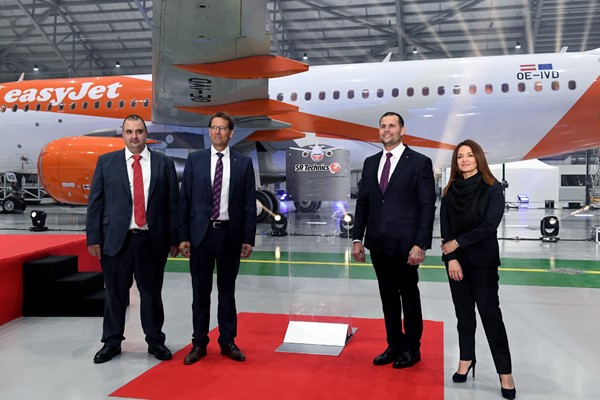
Aviation Malta spoke to Daniel Galea SR Technics’ Vice President of Operations and Accountable Manager about SR Technics’ operations, its future direction and the industry in general.
AS: Could you give me a short history of SR Technics Malta?
DG: We started as a maintenance company for Swissair as an MRO dealing in heavy-based maintenance. We have grown to become a major global player in the MRO market.
In 2010 we opened our facility in Malta, performing heavy-based maintenance for our first customer, easyJet.
Today SR Technics Malta is a largely independent company employing 350 highly-skilled people, providing aircraft maintenance to seven global customers. We are a main service centre for commercial airlines and lessors. SR Technics Group globally has about 500 customers on their books, including easyJet, Vueling Airlines, SWISS, Pegasus, Titan Airways, Condor, Trade Air, Edelweiss, and many more.
AS: Why did SR Technics choose Malta as one of its operating centres?
DG: The support from the Maltese government has been instrumental, with competitive costs and robust regulatory and business frameworks. I think Malta makes an ideal base for MRO operations. In July we got our Maltese Part 145 approval. I know the excellent support that Captain Charles Pace and his team deliver.
We also had a lot of support from the government for training, soft loan agreements, and construction support when building the hangar, and this support has been invaluable. It’s very much part of the government’s welcoming approach.
AS: Could you tell me a little about the SR Technics Centre of Excellence?
DG: The Facility is a total of 34,000 sq. metres and is located on Exit Park 4. The designers have put a lot of thought into the hangar and had to be designed in the leanest way as possible, using materials that are both efficient and environmentally friendly.
The workshops are in the middle, the administration team are in the middle both of which have windows serving both hangars. We have mezzanines connected directly to the dock of the aircraft.
AS: Could you tell me more about yourself and your role at SR Technics? Could you tell me a little bit about your story?
I’m the Vice President of Operations and Accountability Manager with Transport for Malta. I have an MBA and have had more than 22 years of aviation experience as a Technician, an Engineer, and someone who has overseen licensing opportunities with MedAvia, with postings in both Africa and Europe so I have seen MRO from very different perspectives.
I started as a technician, did my licences and then had the opportunity to work on a line station in Medavia in Africa as well as Greece and Netherlands so Northern Africa and Europe. I ended up as the COO of Medavia and Accountability Manager and moved to SR Technics in 2019.
In 2019, I was awarded “Aviation Leader of the Year” by Malta Aviation Outlook.
AS: Could you tell me a little about your management and leadership style?
My leadership operates on the basis of safety first. I also focus on developing our people. I embed this culture into everything we do at SR Technics Malta. At SR Technics we operate in an SQDCP model, meaning that whatever we do Safety comes first followed by Quality, Delivery, and Cost. When it comes to safety and quality there is simply no compromise!
My areas of focus are Safety & Quality, Operation, Workshops, Project Management & Planning, Supply Chain Management, Business Development and Tooling & Equipment Departments.
We have a 350-strong team and have a very strong multicultural workforce. We are proud to see individuals growing with the company and encourage them to cross-train across different departments.
AS: What did you do to build and transform what you did at SR Technics?
DG: When I joined SR Technics it was quite a challenge. I could see that there was a wealth of experience from Zurich, but this was not yet correctly embodied in Malta. There seemed to be a disconnect.
For me, it’s very important for us to simplify things while remaining safety-focused and customer-centric as well as introducing accountability and sustainability.
AS: How did SR Technics cope with COVID?
DG: COVID was obviously a real challenge for our team, our company and the industry in general. However, compared to other operating countries across the group, we remained relatively stable. We reached out to our customers and engaged in one-to-one meetings with them. We explained to our customers that we wanted to be ready with them.
We made agreements to continue working with our customers, some of whom had 300 aircraft rewarding their loyalty with more flexible payment terms. We knew they were suffering too so we gave them breathing space. This mutual respect and willingness to partner with them breathed new life into many of our professional relationships through increased levels of trust and improved communications.
All of this was only possible because of our incredible team. Every single member of our team came to work every day. We mitigated the risk to make the facility COVID-safe, using every available option to sanitise the working area and making it safe for our teams to continue working. We are very grateful to our teams.
So, today our working relationships with our customers are stronger and our teams are as loyal and dedicated as ever.
AS: So, to the future. How do you think 2023 will look from SR Technics Malta’s perspective?
DG: We must complete the project to move to actual independence. I look at 2023 as the time to stabilise and build additional capability to support ongoing customer needs.
We have survived COVID, delivered strong growth, won new business, opened a new hangar and gained Part 145 approval, that’s a lot of transformation to process and a lot that we need to carry. We also are transforming our IT to support our future growth. We want to remain efficient, and we all know that costs are increasing so we have to manage these costs but at the same time remain agile profitable and efficient.
So today we’re stabilising and consolidating to prepare for future growth. Independence is very important, and this forms the cornerstone of our strategy.
AS: How do you think 2023 will look from Malta’s aviation industry perspective?
DG: Malta has done extremely well with new investments and new operators being announced on a daily basis. For a 36 km island with two of the largest MROs in the world, this is quite phenomenal. The fact that Medavia, Ryanair, and Wizz Air are all registering aircraft in Malta clearly demonstrates how attractive Malta is to the aviation industry.
AS: How do you think 2023 will look from the perspective of the global aviation industry?
DG: I think everyone eagerly saw the reports emerging from IATA during COVID that tried to predict recovery, it was at the time predicted that to reach pre-COVID levels the best-case scenario was 2023 and the worst-case scenario was 2025.
The truth is that there is no magic wand, and some continents have reached and even surpassed pre-COVID levels, but others have not yet.
However, the desire to fly is there and one only needs to see the level of passenger traffic in the Summer of 2022 to see that recovery is on the way.

